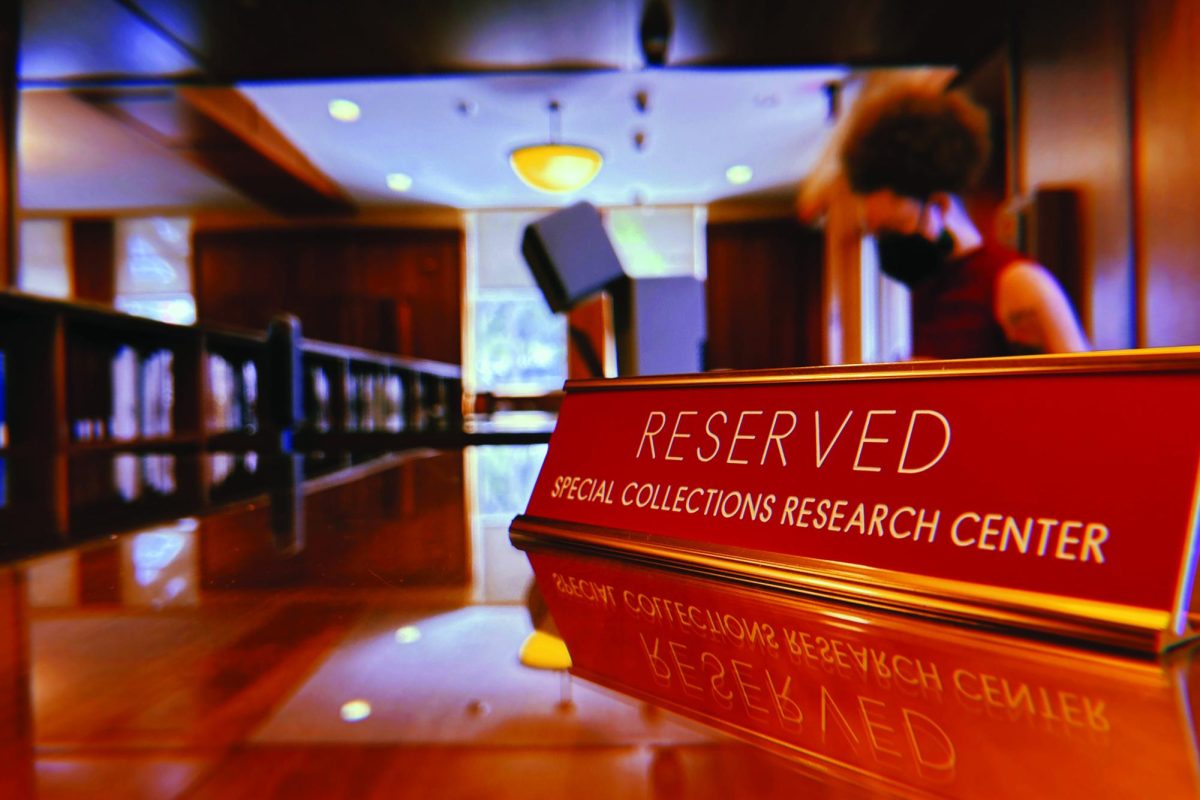Navigating relationships in college can already be stressful, but certain extenuating factors can further complicate these connections. Nevertheless, students at NC State in long-distance, interracial and age-gap relationships are finding unique solutions for challenges while pursuing healthy, meaningful romances.
Long-distance relationships
Haley Irwin, a fourth-year studying nutrition sciences, is in a long-distance relationship with her boyfriend. They went from living side-by-side in a duplex home to being approximately 830 miles apart when her boyfriend left to pursue career opportunities in Homestead, Florida.
Irwin said technology, cost and time can all pose challenges in a long-distance relationship. Despite using various digital mediums like FaceTime, Snapchat and iMessage, it is difficult to replicate in-person interactions.
“It was very challenging to feel connected to him through a phone, because I’m so big on quality time and he is too,” Irwin said.
Travel costs are also burdensome for college students, and given the distance, spontaneous visits are nearly impossible.
“It is challenging that he’s so far away to the point where I can’t just drive over and spend a day with him,” Irwin said.
Irwin approximates that each roundtrip flight costs between $100 to $200, and having made seven visits in the past six months, the expenses add up quickly.
Despite these challenges, Irwin believes that the limitations caused by long distance have strengthened her relationship. Although they’ve had to sacrifice physical intimacy, the couple has improved when using other love languages. Irwin’s boyfriend frequently surprises her with Amazon packages of her favorite items, and she sends him love letters in the mail.
“It really will put your relationship to the test, but in the best way possible,” Irwin said.
Interracial dating
Similarly, interracial relationships can also be tricky to navigate. James Wright, a second-year studying electrical engineering, and Lesslie Hernandez Olvera, a second-year studying human biology, are in a white and Hispanic interracial relationship.
One cultural difference they’ve had to navigate is regarding family expectations in their respective cultures. Wright’s family is more laid back, but Hernandez Olvera’s Mexican American family deeply prioritizes consistent communication and cultural preservation.
“I do think that that’s something that I’ve noticed, that his parents are a lot more relaxed compared to mine,” Hernandez Olvera said. “Like, mine have my location. I’m constantly updating them on what I’m doing throughout the day and throughout the week.”
Wright said boundaries and balance are important, and although Hernandez Olvera agrees, she said these boundaries are difficult to establish in Mexican families, especially since she is still financially dependent on her family. She said her family initially had some worries about cultural preservation given that she is in an interracial relationship.
“If I date a white man, then the culture is just going to continue diluting itself, or whatever,” Hernandez Olvera said, regarding her family’s perspective. “Not so much the skin color, but more the traditions and the values that we have.”
Ultimately, the couple emphasized the importance of acceptance in interracial relationships, noting that respecting each others’ differences has allowed their relationship to flourish.
Intercultural and queer relationships
Fernanda Duarte, a communication technology assistant professor, is 43 years old and of Brazilian descent. She and her wife have now been married for 12 years.
The legitimacy of her relationship is something that Duarte finds very important. Durate and her wife, Rachel, found it difficult to get legally married in the United States. Eventually, they were able to travel to Brazil where they were married, surrounded by friends and family.
“I like to use the qualification, I like to use the word wife instead of partner or spouse,” Duarte said. “Because we earned that title so it was really special to be able to use a very traditional form of legitimization”
Duarte said family is a crucial part of Latin culture, and it is prevalent in her own. She said her family is large, but that didn’t stop them from treating Rachel like one of their own, even trying their best to pronounce her name correctly, which is especially hard with a Brazilian accent.
“I have a large family — uncles and aunts and cousins, the partners that are married into the family,” Duarte said. “I think people were surprised when they saw me in a same-sex relationship because of Latin culture, where sexism is still pretty prevalent, but they were mostly excited to see how happy I was.”
Age-gap partners
Emma Canterbury, a fourth-year studying English, is 22 years old and is married to Joseph Canterbury, a 26-year old college graduate. Emma Canterbury said the age gap has created an interesting relationship dynamic between her and her husband, which is why their relationship probably doesn’t look like most.
Since the two are in different stages of their lives, challenges arise when they are completing daily tasks. Joseph Cantebury is a West Point graduate and now is a paratrooper for the United States Military. On the contrary, Emma Canterbury is still a college student and needs to keep up with her studies.
“I have to come home, I have to study,” Emma Canterbury said. “I have to do all these things, which, even though it stresses me out, it kind of vicariously impacts him as well.”
Being at different stages in life can become a large challenge in age-gap relationships. Communication challenges can especially be hard with people having to deal with different chapters of their lives. However, Joseph Canterbury tries his best to give Emma Canterbury a little grace when coming to this.
“Communication really is so very important,” Emma Canterbury said. “Communicating in a way that is effective for both parties, like not arguing over text, not yelling, not belittling the other person and making their feelings feel invalidated. He’s very good about validating my feelings and making sure that I’m heard and seen in every situation.”
Legitimacy is important in relationships, and most times the perception of an age-gap relationship can damage its legitimacy. Others might assume things about age-gap relationships, and that can come off as rude and maybe even damage relationships.
“Maybe before I was in one I would have been a little bit more apprehensive and maybe even nearing judgy,” Emma Canterbury said. “But now that I’m in one myself, I can give some grace and recognize that everybody else kind of has their own things going on.”




